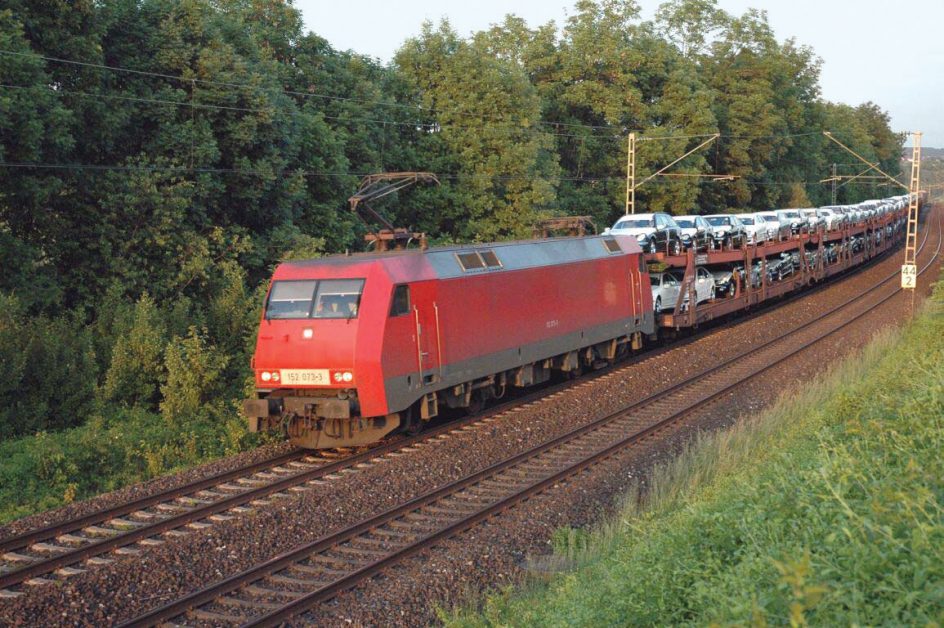Automakers including market leader Maruti Suzuki are increasingly using alternative modes of transport beyond roadways to ferry finished vehicles to clamp down on emissions and cut cost, amid a sharp increase in fuel prices.
More than a fifth of all passenger vehicles produced in India are now transported via railways, about a five-fold increase from 4.5% in fiscal 2018. Apart from a reduction in overall logistics costs, using railway rakes offers the convenience of efficiently transporting multiple batches of vehicles while helping meet sustainability targets, said industry stakeholders.
Railway transportation also enables automakers to reach faraway destinations in half the time compared to roadways. With destination terminals at Agartala and Silchar, they are able to take vehicles to locations in Northeast India in about eight days, which would otherwise take 16 days.
Rajesh Menon, director-general of industry body Society of Indian Automobile Manufacturers (SIAM) said: “The auto industry has been able to increase the modal share of railways in overall vehicle transportation, as its efficiencies have also been improving over the years, especially for distances of more than 1,000-1,200 kilometres. As per our estimates, 4.5% of new passenger vehicles manufactured in India were being transported through railways in 2017-18, while it grew to about 20% by 2021-22.”
He said the railways had created the necessary siding infrastructure at many auto-manufacturing plants for minimising last-mile connectivity issues, he said. “Railways have also been proactive in introducing more rakes to meet the growing demand of the Auto Industry.”
Maruti Suzuki last year dispatched 335,245 units through railways – the highest in a fiscal year and nearly 43% more from the year before. The company is working at increasing the share of rail transportation and said it will move an incremental 100,000 vehicles via rail every year over the next few years.
Rahul Bharti, executive officer (corporate affairs) at Maruti Suzuki, said over the past few years, the company had been undertaking several measures to increase the focus on green logistics. “Aligned with the government’s efforts to minimise carbon emissions in logistics, we plan to systematically increase dispatches by close to 100,000 units annually in the coming years”, Bharti said. To achieve this, the company is adopting practices like enhancing dispatches to shorter distances, utilising railway rakes and increasing the use of digitalisation in planning for dispatches.
The share of railways in the total number of vehicles transported by the company more than doubled to 17% in the last financial year, from 8% in FY19.
Apart from Maruti Suzuki, Transport Corporation of India, APL Vascor, Adani NYK, IVC Logistics and Joshi Konoike Transport & Infrastructure have also secured AFTO (Automobile Freight Transport Operator) licences to cash in on the potential in the space.
Bharat Joshi, chairman of Joshi Konoike, said automakers were leading the way in being environment conscious and responsible corporate citizens. “Rail is a cleaner mode of transport than road, and safer – the statistics regarding road fatalities in India are well known,” he said.
While road freight rates have been on a rise with a pickup in economic activity and a steep hike in fuel prices, rail freight rates have relatively remained stable since the Indian Railways unveiled the AFTO policy in 2013. It is only recently that freight rates have been hiked by the railways, leading to some concerns among automakers. SIAM’s Menon said the about 20% increase in rates for automobile freight trains with effect from April 1 could impact the feasibility of operating these trains by automakers.
Maruti Suzuki is India’s first automobile manufacturer to obtain an AFTO licence, as early as in 2013. The licence allows the company to fabricate and operate high-speed, high-capacity auto-wagon rakes on the Indian Railways network. The company has 40 railway rakes, with a capacity of 300-plus vehicles per rake.
Maruti Suzuki, which has so far transported more than a million vehicles via rail, has this way offset over 5,250 million tonnes of carbon dioxide emissions in the last eight years. The increased focus on using railways for vehicle transport additionally helped it save 175 million litres of fossil fuel by avoiding truck trips in this period.
The railways liberalised the AFTO policy in 2018 to encourage private investment in special wagons. The registration fee for the scheme was reduced to ₹3 crore from ₹5 crore.







